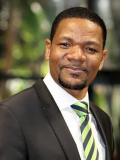




Just like the widespread industrial shutdowns of the Great Depression, the COVID-19 economic crisis has left industrial companies reeling. Auto manufacturing plants are lying idle and demand for crude oil, copper, iron ore, and other industrial commodities is grinding to a halt. However, the biggest difference today is that we are also facing an unprecedented climate crisis.

Immediate Solutions to Increase Water Supplies and Access

As the number of confirmed cases of COVID-19 in the United States continues to rise and more and more Americans are told to stay home, the true extent of this crisis is becoming more apparent daily. Our immediate focus is on the health and safety of our families, our neighbors and the nation as a whole, as it should be. I can only imagine the suffering of people who have already lost a loved one to the virus or have a parent in a nursing facility where an outbreak has occurred. We need to do everything we can to protect the lives of all Americans.
While we will get through this immediate health crisis one way or another, its wake will be felt for years, perhaps for decades. It is not too soon to recognize and begin addressing the financial hardship caused by social distancing. As restaurants, theaters, retail stores and other establishments close their doors, either voluntarily or in response to emergency orders, small businesses and workers are bearing the immediate brunt of the economic fallout.
